India Infections Top 20 Million, Top Cricket League Suspended
India's coronavirus caseload topped 20 million on Tuesday as the crisis finally forced the suspension of the nation's lucrative cricket competition involving some of the sport's biggest global stars.
The South Asian nation's plight stands in stark contrast to Europe and the United States, where mass vaccinations have allowed the easing of many coronavirus restrictions.
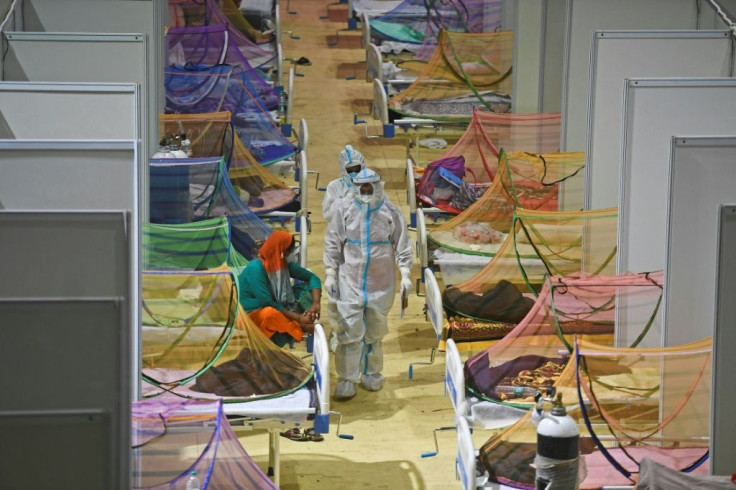
India's total virus caseload since the start of the pandemic surged past 20 million with more than 350,000 new cases reported on Tuesday and 3,449 more deaths, higher than anywhere else.
But the number of new infections was down from a peak of 402,000 last week, raising hopes that the worst of the devastating wave may have passed.
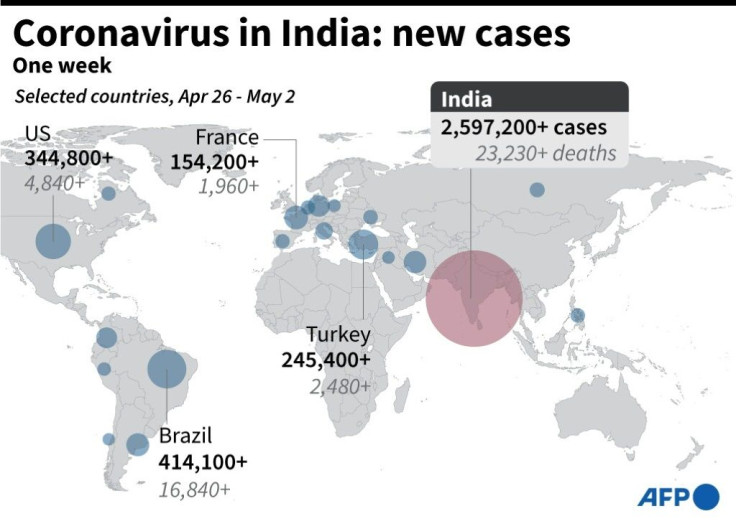
India's healthcare infrastructure has struggled to cope. In the central city of Bhopal, rickshaw driver Mohammad Javed Khan turned his vehicle into a makeshift ambulance after he saw people carrying patients to hospitals on their backs because they were too poor to afford one.
"Even when (people) call ambulances, the ambulances are charging 5,000-10,000 rupees ($70-140)," said Khan, who sold his wife's jewellery to equip the rickshaw with medical equipment.
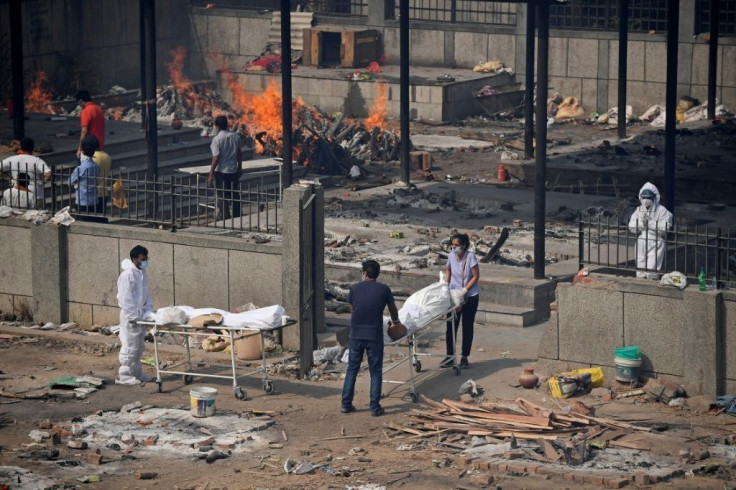
Bihar, a state of around 120 million people, on Tuesday became the latest Indian region to impose a lockdown.
Following criticism, the Indian Premier League, the world's richest Twenty20 cricket tournament, featuring stars from India, Australia, England and New Zealand, was suspended and its players sent home.
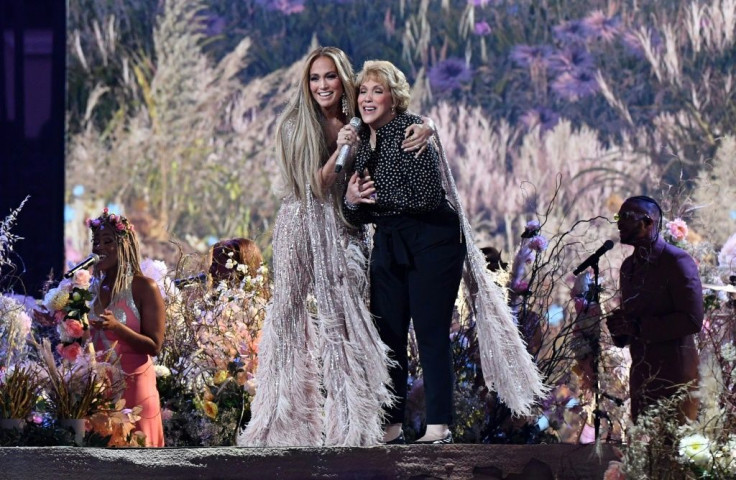
The surge in India -- spurred by huge gatherings including the Hindu festival Kumbh Mela -- has highlighted the continuing dangers of Covid-19, which has now claimed more than 3.2 million lives worldwide.
Religious events are a threat in neighbouring Pakistan too, where authorities are battling a third wave of infections and urging Muslims to observe precautions during the holy month of Ramadan.
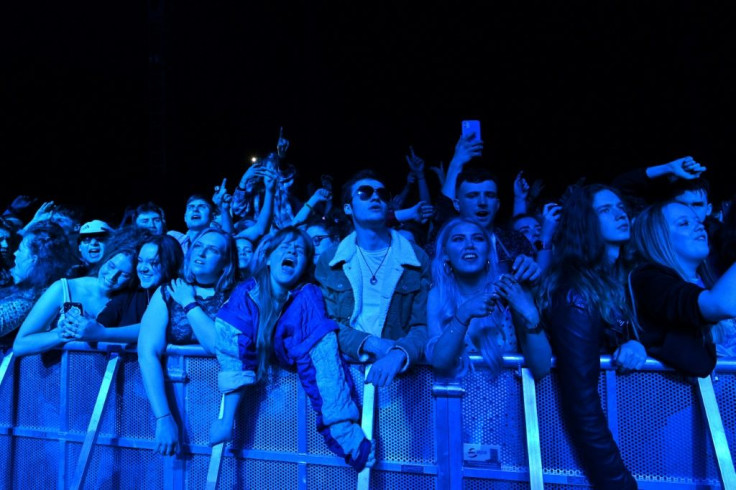
Despite the warnings, thousands of Shia Muslims -- many not wearing masks -- gathered Tuesday in the eastern city of Lahore for an annual religious procession.
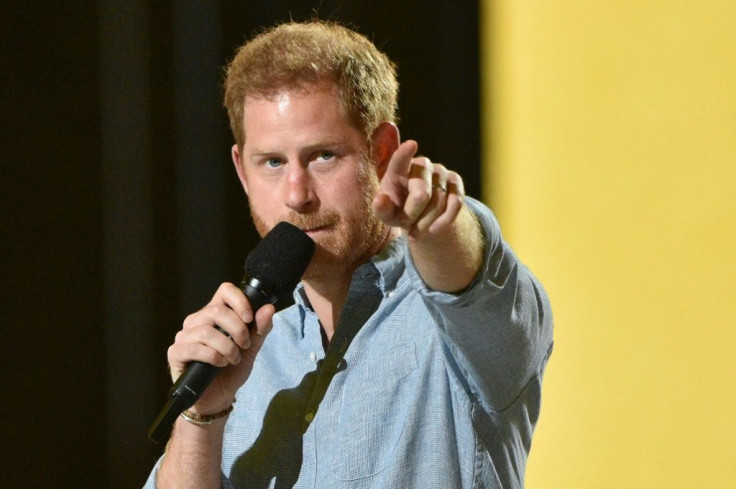
In the United States, imminent plans to start vaccinating adolescents have sparked a debate about the ethics of immunising a low-risk population while the pandemic rages in India and elsewhere.
President Joe Biden told reporters the US was ready to "immediately" vaccinate 12- to 15-year-olds once health authorities give the green light, after trials by Pfizer-BionNTech showed their jab was safe for the age group.
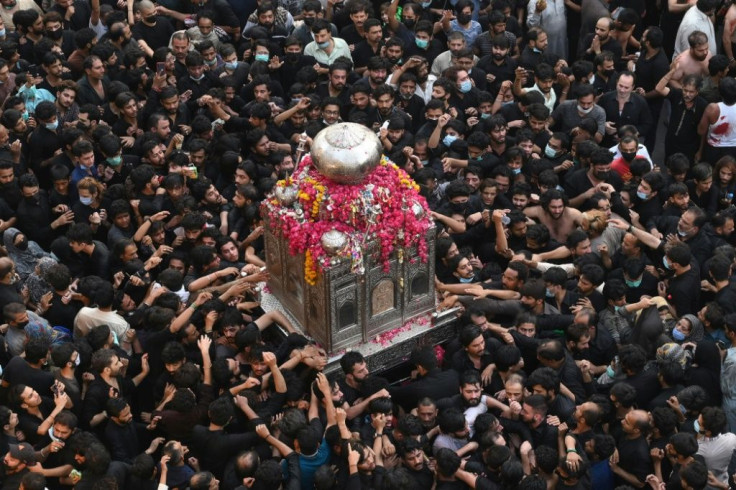
Pfizer on Tuesday estimated it would bring in revenues of $26 billion from its vaccine in 2021, with profits also rising due to the surge in demand.
Biden wants 70 percent of US adults to have received at least one vaccine dose by the July 4 Independence Day holiday, the White House said.
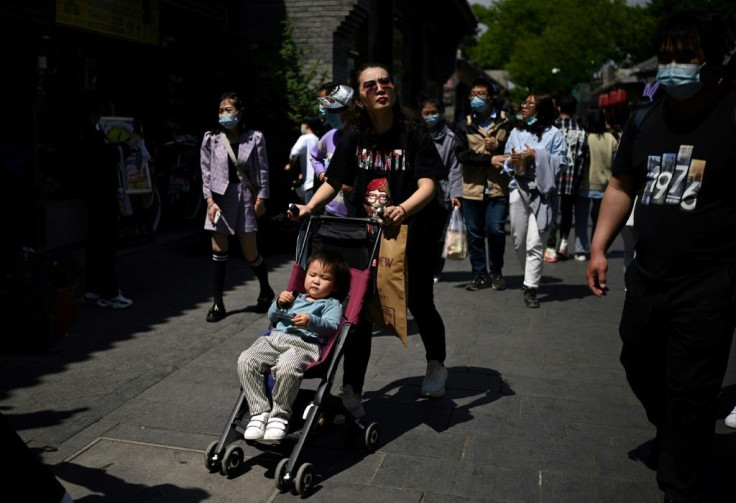
Across the border in Canada meanwhile, Prime Minister Justin Trudeau dismissed an advisory panel of doctors' ranking of Covid vaccines according to safety.
"Every single vaccine available in Canada has been approved by Health Canada as safe and effective," Trudeau told reporters, saying Canadians should take whatever one was offered to them first.
After a rocky start to Europe's vaccine rollout, the inoculation drive has been progressing there too, with a quarter of the EU population having received at least one dose.
EU chief Ursula von der Leyen said the bloc was on track to have 70 percent of adults immunised by late July.
European leaders are looking to take further steps towards recovery with a proposal to revive international travel and tourism as early as next month.
The European Commission has proposed that travellers fully vaccinated with EU-approved shots or those coming from countries where Covid-19 is under control should be allowed to enter the bloc.
The European Union has so far approved the Pfizer/BioNTech, Moderna, Johnson & Johnson and AstraZeneca vaccines, and the EU medicines watchdog has begun reviewing China's Sinovac jab for possible approval.
As Denmark reopens, restaurants, bars and other establishments will ask customers to present certificates showing a negative test result from the previous 72 hours, or else proof of vaccination or recent recovery from Covid-19.
Germany is moving toward easing curbs for fully vaccinated people, even if Munich's Oktoberfest autumn beer festival has been cancelled for a second year running.
Further south, the Monaco Grand Prix is to due to go ahead in late May with 7,500 spectators.
In China, where the virus first emerged in 2019, millions of people have flocked to domestic tourist attractions with the country's outbreak largely under control.
But Singapore announced new restrictions including a ban on spectators at sporting events as infections rise in the wealthy Asian city-state.
And Tanzania announced new travel curbs measures on Tuesday, with passengers arriving in country now needing to show proof of a negative test.





















